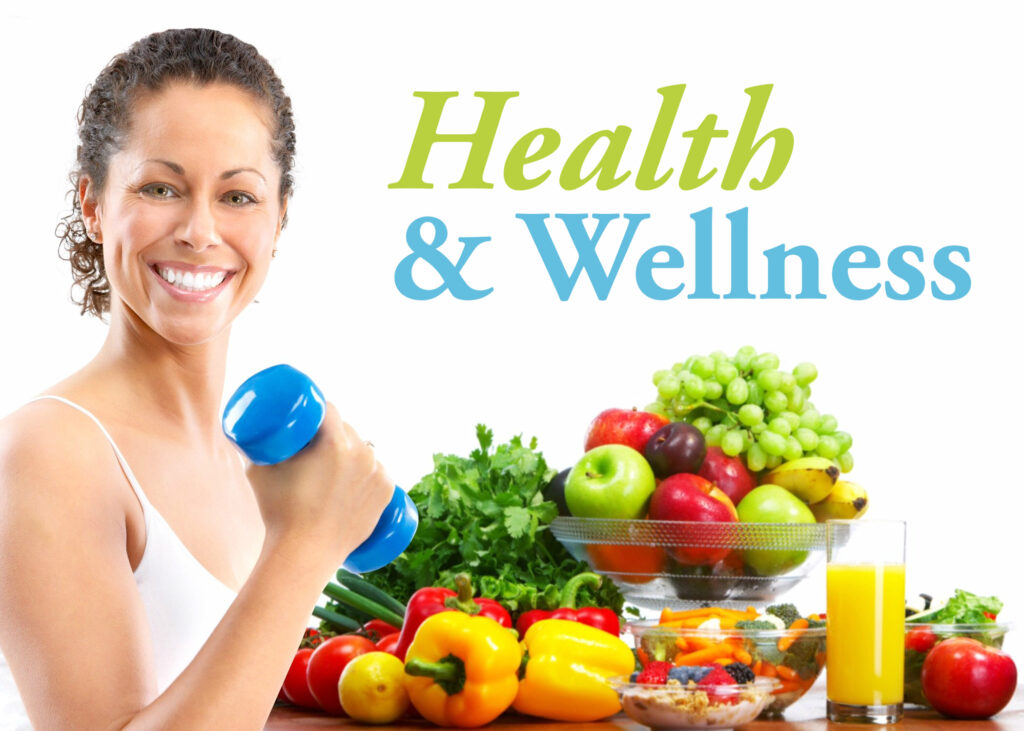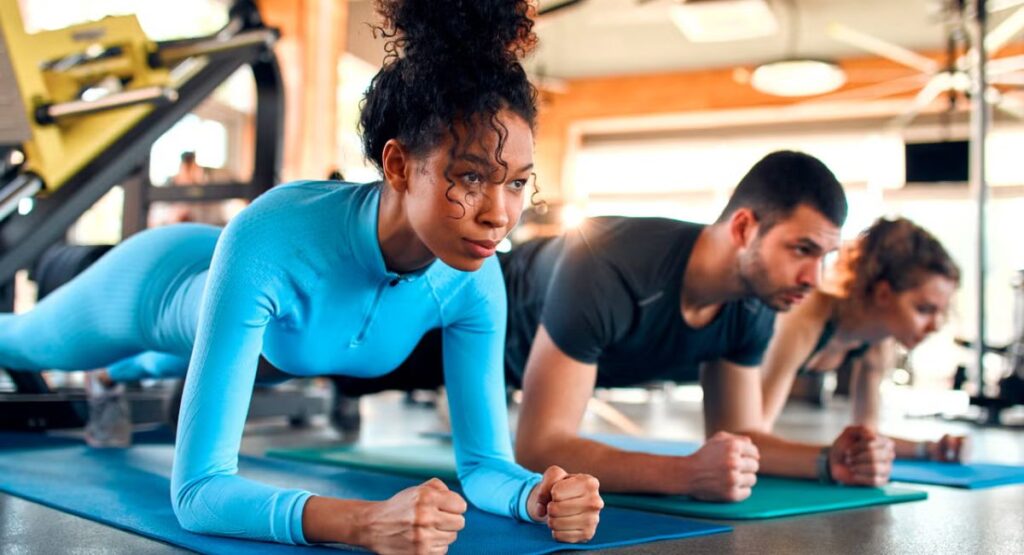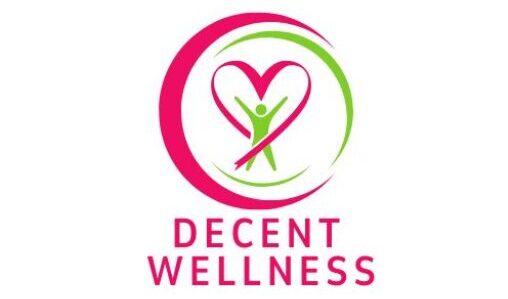Introduction to Fitness.
What Does Fitness Mean?
It’s not just attaining the coveted abs or running that marathon, but fitness involves moving, breathing, and living freely: having stamina, strength, and resilience, both physical and mental.
Why Fitness Is Important to the World
Living in a digital age where little movement defines much activity, coupled with a great deal of stress, fitness is the best medication. It keeps diseases away, sharpens the mind, and makes one happier. It’s your superpower waiting to be turned on.
Basic Components of Fitness
Cardiovascular Endurance
Your heart is the engine of your body. Cardio exercises build up the engine, improve blood circulation in your body, and will provide you with the energy to keep going longer without getting tired.
Muscular Strength and Endurance You, at times, require good strength within your muscles to meet daily chores like bringing in groceries, climbing stairs, or just playing with kids, all without injuring yourselves.
Flexibility and Mobility
One minute you are laughing; the next minute you sense that you are about to pull something because you turned too quickly.The flexibility and mobility that are the ultimate elements ensuring the best condition of the joints and smoother movement.
Body Composition Refers to what percentage of your body composition is fat and what percent muscle. Weight does not matter; the composition of your body matters.
The Physical Benefits of Regular Exercise
Weight Control and Fat Loss
Burns off calories, revs up metabolism, and maintains the weight loss, regular workouts are the whole works.
Better Bones and Joints
Strength training not only builds muscle mass but also strengthens bones, a very important consideration as we age.
Heart Health
Thirty minutes of moderate physical activity on most days will lower the risk of heart disease and stroke.
The immune system has been strengthened.
Exercise is the best remedy for your immunity. Period..
Fitness and Mental Qualities

Diminished Tension and Anxiety
Sweat it all out. Literally. Physical activity minimizes cortisol levels while enhancing the release of endorphin hormones.
Elevated Spirits and Self-Esteem
Setting goals, making measurable advancements, and moving more feels good. That simple.
Mental Clarity and Focus
Consequently, the blood circulation line is more moving, which leads to sharper mental thinking.
Improved Quality of Sleep
You toss and turn? You will find that a good workout each day makes it easier for you to fall asleep and have a deeper sleep at night.
Starting Your Journey in Fitness

Set Practical and Wise Goals
“Walk for ten minutes daily” or “exercise three times in a week” are reasonable, realistic goals, not “get a six-pack in six days.
Correctly Specify Exercises
Like to dance but dislike running? Good! Find an activity that you enjoy.
Consistent Routine
Think of it as a part of your daily routine.
Monitor Progress
Use apps or a notebook—just keep tabs on what you’re doing and how you’re improving.
Types of Exercises to Include
Cardio Workouts
All that increases your heart rate, which includes running, cycling, and swimming.
Strength Training
Dumbbells, Resistance bands, and/or kettlebells could be used..
Mobilization and Flexibility Training
Happy Joints-Yoga, stretching, foam-rolling.
Functional and Balance Movement
Squatting, lunging, and stabilization drills are simply moving better and not more.
Nutrition and Recovery in Fitness

Fuel Your Workouts with Wholesome Energy from Proteins, Carbs, Healthy Fats Intact-from fresh produce, not overly nutrient-depleted-puréed-whole, real, from processed.
Hydration Counts
Hydrate like your life depended on it, especially before, during, and after workout periods.
Rest and Muscle Recovery
The best place to gain is probably during rest. Do not skip your rest days or sleep.
The Don’ts
Not Doing a Warm-Up and a Cool-Down.
Get your body going, and then wind it down properly.
Under-Recovery, Overtraining
More isn’t necessarily better. Your body is your best critic.
Not Paying Attention to Form
Worst form = injuries. Learn the right way, then go heavy.
Motivating That Finally Reaches Long-Term
Create Challenges and Celebrate Victories
Even small goals count. Indulge yourself in rewards that are not food.
Work Out with a Friend or Join a Group

Accountability = consistency.
Change it Up to Avert Boredom.
Don’t hesitate to keep changing your fitness routine to keep motivated or untamed.
Fitness For All Age Cohorts
Children and Young Adults
Effectively Fun Movement Instills Lifelong Habits, Not the Least, ‘Sports, Dance, and Play’.
Adults
Cardio and weight training should be balanced. Health is a long-term affair, not a cheap fix.
Older Families
Mature, strong-but-gentle balance and flexibility keep you maintaining autonomy and movement.
Pro and Con: Fitness at Home and in the Gym
In the gym, equipment and camaraderie are provided. Home workouts, on the other hand, offer convenience and flexibility.
How to Build a Home Gym Economically
Start with resistance bands, yoga mats, and some dumbbells.
Integrating Fitness into Your Lifestyle
Making Fitness Everyday Walk in the calls. Use the stairs. Stretch during TV.
Smart Habits That Keep You Active
Every hour, stand up. Active weekends are planned. Automatic movement.
Tools And Applications That Help You Keep Fit
Best Fitness Trackers
Fitbit, Apple Watch, Garmin—steps, heart rate, and sleep tracking.
Best Workout Apps for Beginners and Advanced
Nike Training Club, MyFitnessPal, and FitOn are a shaky pocket-sized project.
Myths and Misconceptions About Fitness

Spot Reduction Doesn’t Work
Belly fat cannot be reduced by crunches alone. Overall, fat needs to be burned.
Lifting Weights Makes You Bulky
Muscles are lean, strong, and sexy. Not bulky-unless you train for it.
You Don’t Need to Work Out Every Day
Rest is equally important as reps. Your body needs time to repair itself.
Conclusion
Fitness is more than working out and dieting: It is a lifestyle. It is about showing up for yourself, moving your body, eating right, sleeping right, and loving the ride. No, it is hard but it is worth it. Start with where you are, what you have, and do what you can. Your highest and healthiest self is waiting.
FAQs
1: What days should I work out the most?
If you can manage 3-5 days a week, that would be a good exercise regimen according to your goals.
2: What is the right time to work out?
The best time is whenever you can coerce yourself afterward to show up and do that workout! It could be morning, afternoon, or evening-whatever time suits your schedule.
3: Can I lose weight without being in the imaginary space called ‘gym’?
Definitely! Just exercise at home, take a walk, and eat healthy.
4: How soon can one expect results?
You’ll feel good in a week and see changes in a month; in three to six months, you’ll feel it transforming.
5: What should I consume before and after a workout?
Before: a small snack of carbs. After: This is satisfying enough to replenish the protein and carbohydrates.


Hey there!
Welcome to Moviezhive.com, where blockbuster entertainment is just a click away!
Stream a vast collection of Bollywood, Hollywood, and international movies for free—no subscriptions, no hassles.
What Makes Us Special?
✔️ Thousands of movies across all genres
✔️ Zero pop-up ads for seamless viewing
✔️ Advanced zero-buffering tech for smooth playback
✔️ Fresh titles added regularly
Can’t find a movie? Request it, and we’ll upload it fast!
Watch anytime, anywhere. Visit https://moviezhive.com now and start your movie adventure!
Enjoy the Show,
The Moviezhive Team